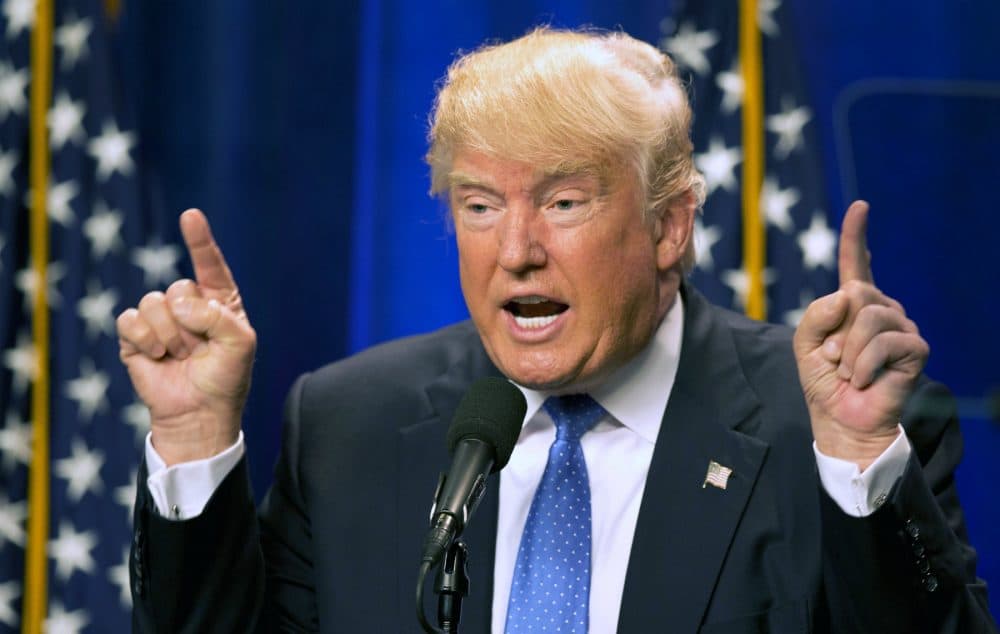Advertisement
In A Dogma Eat Dogma World, A Defense Of Political Correctness

This essay originally began with my outraged comments regarding Donald Trump’s self-aggrandizing, finger-pointing response to the murders in Orlando. But in light of his subsequent behavior – implying that President Obama was himself somehow complicit with terrorists, then barring The Washington Post from covering his press events for calling him out on his innuendo – there’s no need to add my voice to the chorus of condemnation. I’d like to believe that all but the most die-hard zealots will be shaken by this display of shameless demagoguery.
But even among those who see the logical fallacy behind Trump’s bombastic calls to ban Muslims from entering the country — Omar Mateen was, after all, a native born American citizen — some people are nonetheless quietly wondering: Have we gone too far with this tolerance business and sacrificed our safety to some sort of orthodoxy? Has “political correctness” facilitated domestic terrorism?
...the phrase 'political correctness' was born as a coded cover for all who still want to say Paki, spastic, or queer, all those who still want to pick on anyone not like them, playground bullies who never grew up.
Polly Toynbee
It depends on how you define political correctness.
The term seems to have originated in the mid 20th century among communists who, wedded to the notion that Marxism was “scientific,” asserted that their positions were, therefore, infallible. This concept quickly became a cause for mockery among the less doctrinaire. “The term 'politically correct' was used disparagingly, to refer to someone whose loyalty to the CP [Communist Party] line overrode compassion, and led to bad politics,” the educator Herbert Kohl wrote. Leftists used it to mock those in their ranks who excused the inexcusable (such as Stalin’s purges and his short-lived but vile non-aggression pact with Hitler); they wielded it to assert the primacy of human decency over dogma.
But in the 1990s, right wing intellectuals appropriated the term to attack those on college campuses who were advocating for a more egalitarian and inclusive environment. “Politically correct” became an epithet hurled at liberal students and professors who were trying to bring a more diverse set of voices into academia and a more holistic (and accurate) telling of history into college curricula. As Kohl notes, neo-Conservatives used the phrase to suggest that “egalitarian democratic ideas are actually authoritarian, orthodox, and Communist-influenced when they oppose the right of people to be racist, sexist, and homophobic.”
Or, to quote British journalist Polly Toynbee, “...the phrase 'political correctness' was born as a coded cover for all who still want to say Paki, spastic, or queer, all those who still want to pick on anyone not like them, playground bullies who never grew up."
Sound familiar?
Advertisement
Fast forward to today, and there is Donald Trump saying that political correctness is causing us to coddle terrorists, to shun the practical measures that would keep us safe. And what does he mean by the term? Ostensibly, he means an orthodox adherence to a set of principles, in this case, those embedded in the Constitution. But if political correctness means sacrificing common sense to a rigid belief, then who’s guilty of it? The majority of Americans capable of nuanced thinking, who abhor the violent fanaticism of Islamist terrorists but recognize that a population of millions shouldn’t be shunned or banned because of the anomalous actions of a few? Or Trump and the Republicans, who dogmatically, absolutely resist any form of gun control — including barring people on the terror watch list from buying guns? When they cloak their obeisance to the NRA in the mantle of the 2nd Amendment, aren’t they guilty of the very ideological purity they’re condemning?
Though in truth, I don’t think that Trump’s definition of political correctness is as lofty as a rigid adherence to a doctrine. In using the term (and with such derision), he is really just attacking “tolerance” – specifically, the tolerance of diversity. More specifically, the tolerance of non-white, non-Christian diversity. And sadly, in this he is not alone.
I fear that those blaming political correctness for occasional if horrifying acts of terror are more frightened and appalled by mass killings committed by radical Islamists like Omar Mateen or Syed Rizwan Farook and Tashfeen Malik than by radical Christians like Robert Lewis Dear, Jr., racists, like Dylann Roof, and gun-loving libertarians like Timothy McVeigh. Or if not more alarmed, at least more willing to go after the group they perceive as the more easily identifiable target.
In using the term political correctness...[Trump] is really just attacking 'tolerance' – specifically, the tolerance of diversity.
But just as the overwhelming majority of LGBT people are not AIDS-spreading pedophiles, the vast majority of Muslims are not terrorists. Acknowledging that is not a manifestation of self-sabotaging political correctness; it’s taking a clear-eyed look at reality. As Polly Toynbee observes, “The politically correct society is the civilised society, however much some may squirm at the more inelegant official circumlocutions designed to avoid offence. Inelegance is better than bile.”
If tolerance means assuming positive intent, then the call to abandon political correctness means the opposite. And as President Obama noted in his blistering response to Trump, “If we fall into the trap of painting all Muslims with a broad brush and imply that we are at war with an entire religion, then we are doing the terrorists’ work for them.”
